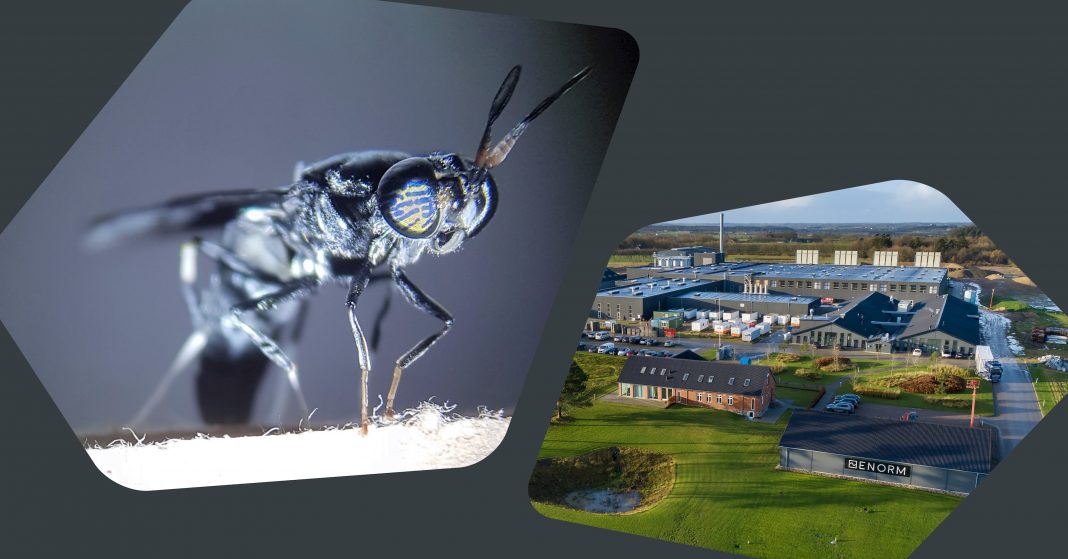Arla Foods Ingredients has teamed up with ENORM, Northern Europe’s largest insect farm, in a partnership that will significantly reduce food waste.
Delactosed permeate (DLP) is a residual dairy stream generated in large volumes during lactose production. Most DLP is currently used as material for biogas production, which is a less preferable option than re-use for animal feed according to the food waste hierarchy set out in the EU’s Waste Framework Directive.
Arla Foods Ingredients has long been investigating ways to address this challenge, but DLP’s composition has previously made it difficult to use in traditional animal feed. This is about to change thanks to the larvae of the black soldier fly. Currently used by ENORM for animal feed, they also offer huge potential as a healthy and sustainable source of protein for humans.
Having developed the capacity to turn DLP into nutritious feed for the larvae, Arla Foods Ingredients has been supplying ENORM with DLP for trial production for several years. However, ENORM is now opening a major new facility in Flemming, Denmark, and gearing up for full-scale production.
As a result, the amount of DLP that Arla Foods Ingredients supplies to ENORM will increase substantially – to 15 truckloads a week from early 2024. When the new facility is up and running, it will be able to produce 100 tonnes of larvae daily – enough for more than 10,000 tonnes of insect meal.
Because its destination will be feed rather than biogas, the partnership will allow DLP to move up in the waste hierarchy. Arla Foods Ingredients estimates that the partnership will enable its Danmark Protein facility to achieve a significant (16%) reduction in food waste.
Sønke Møller, Senior Sales Developer at Arla Foods Ingredients, said: “A commitment to circularity is at the heart of Arla Foods Ingredients’ business model. So we’re hugely excited to be partnering with ENORM as it works to revolutionise the provision of protein and create more sustainable food systems.
“This collaboration – which will see a by-stream previously classified as food waste transformed into something with potentially huge nutritional value – is a fantastic example of companies working together to make upcycling a reality.”


